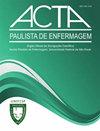新生儿疼痛管理的知识翻译和交流干预的实施
IF 1
4区 医学
Q3 NURSING
引用次数: 0
摘要
目的介绍一种多方面的知识翻译和交流干预措施的实施过程,以改善新生儿疼痛管理实践,并评估卫生专业人员在新生儿疼痛过程中采用这种干预措施的情况。方法在新生儿病房进行准实验前后对比研究。在概念框架“促进卫生服务研究实施行动”的指导下,实施了以证据为基础的提高质量干预措施,分两个阶段实施(准备和实施)。通过描述性统计,通过与疼痛管理相关的临床指标来衡量其采用情况。结果在讨论了该单位需要改变的现有做法,综合了当前的科学证据和当地背景数据后,该单位的研究与实践委员会成员制定并实施了一致的、可实现的疼痛管理实践改变目标,选择了知识翻译和交流策略,确定了目标受众和指标,并实施了干预措施。进行疼痛手术的次数减少了32.8%,疼痛评估量表的使用增加了26.6-50.7%,口服葡萄糖的使用增加了25.1%。结论:改善质量干预的多方面循证实践是复杂的,其过程需要知识和技能,需要各方行动者的承诺,需要时间和资金投入。分析的指标表明,干预导致了新生儿疼痛管理的临床实践的积极变化。本文章由计算机程序翻译,如有差异,请以英文原文为准。
Implementation of a knowledge translation and exchange intervention for pain management in neonates
Objective To describe the implementation process of a multifaceted knowledge translation and exchange intervention to improve pain management practices, and to evaluate the adoption of this intervention by health professionals during painful procedures in neonates. Methods A quasi-experimental before-and-after study developed in a neonatal unit. The Evidence-Based Practice for Improving Quality intervention guided by the conceptual framework The Promoting Action on Research Implementation in Health Services was implemented in two stages (preparation and implementation). Its adoption was measured by clinical indicators related to pain management presented through descriptive statistics. Results After discussion on existing practices in the unit that needed to be changed, synthesis of current scientific evidence and local context data, members of the unit’s Research and Practice Council developed and implemented coherent and achievable goals for the change of practice in pain management, selected knowledge translation and exchange strategies, determined the target audience and indicators, and implemented the interventions. There was a 32.8% reduction in the number of painful procedures performed, an increase of 26.6-50.7% in the use of pain assessment scales and of 25.1% in the administration of oral glucose. Conclusion The multifaceted Evidence-Based Practice for Improving Quality intervention is complex, and has processes that demand knowledge and skills, commitment from the various actors involved, availability of time and financial investment. The analyzed indicators showed that the intervention resulted in positive changes in clinical practice in the management of pain in neonates.
求助全文
通过发布文献求助,成功后即可免费获取论文全文。
去求助
来源期刊

Acta Paulista De Enfermagem
NURSING-
CiteScore
1.40
自引率
0.00%
发文量
92
审稿时长
4 weeks
期刊介绍:
Acta Paulista de Enfermagem – (Acta Paul Enferm.), ISSN 1982-0194, is a [bilingual] technical-scientific electronic publication of the Escola Paulista de Enfermagem – EPE, Universidade Federal de São Paulo – UNIFESP.
Our mission: To disseminate the scientific knowledge generated within the rigor of research and ethics methodology.
Our objective: To publish results of original research for advancement of practices of clinical, surgical, and management nursing, as well as education, research, and information and communication technology.
 求助内容:
求助内容: 应助结果提醒方式:
应助结果提醒方式:


